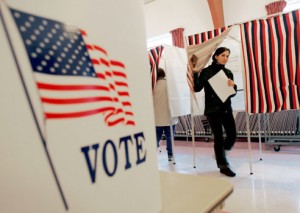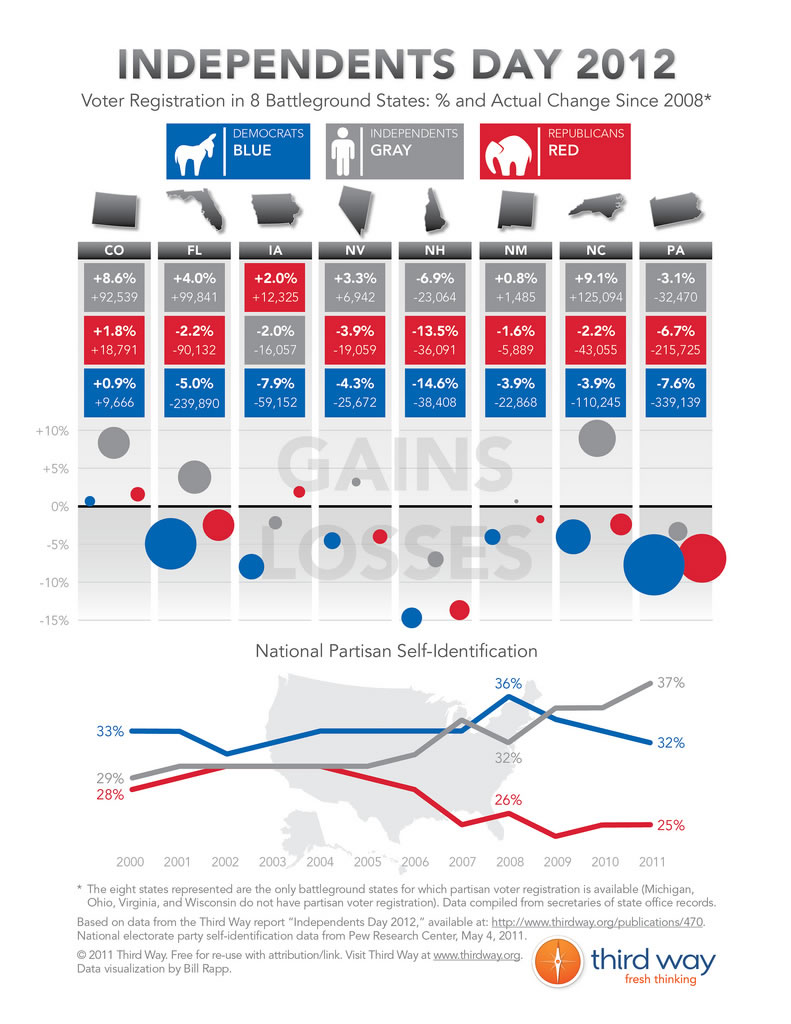New poll shows Independent voters diverse, misrepresented

It is a commonplace in today's political commentary is the understanding that winning Independent voters is the key to victory in national elections. In a close contest, it is Independents who cast the decisive ballots. Yet, despite their significance, the key to securing the Independent vote often remains a mystery to Democratic and Republican party strategists. This is no surprise, as the Democratic and Republican parties can barely even maintain the support of their own members, as demonstrated by the steady increase nationwide in Americans self-identifying as Independents.
Though Independents are frequently treated as an electoral monolith, there is a high degree of diversity among Americans who refuse to identify themselves with any political party. In many respects, Independent voters more closely mirror national demographics as a whole, more than Democratic and Republican party supporters combined. Political analysts and strategists tied to the major parties are apparently only beginning to come to terms with this basic fact. Consider, for example, these preambulatory lines on a new report from the centrist Democratic think tank Third Way, which takes a look at exit poll data on Independent voters from 2008 and 2010:
“This memo analyzes 2008 exit poll data and reveals startling new findings. Many analysts lump all Independents together, when in fact there are two very distinct groups of Independent voters: those who voted for Barack Obama in 2008 (“Obama Independents”) and those who voted for John McCain (“McCain Independents”).”
It is difficult to decide whether it is more startling that political analysts are only now beginning to study surveys of Independent voters from the 2008 elections, or that they are only now becoming cognizant of distinct groups among the Independent electorate. Whatever the case, the authors of the report, Michelle Diggles and Lanae Erickson, unearth some noteworthy findings. Chief among these, ironically, is the implication that there are more than “two very distinct groups of Independent voters.”
In comparing those Independents who voted for Obama with those who voted for McCain in 2008, the report finds that 47% of Obama Independents did not vote Democratic in the 2004 presidential election and that 25% of the same voted for a Republican congressional representative in 2010. On the other hand, 20% of those Independents who supported McCain in 2008 did not vote Republican in 2004 and 15% of them voted for a Democrat, a third party candidate or did not vote at all in 2010.
In other words, there are at least three distinct groups of Independent voters legible in the poll data analyzed in the report. In recent national elections the Independent vote has mirrored the partisan breakdown of the country as a whole: liberal Independents lean toward the Democratic party, conservatives lean toward the Republican party and moderates swing back and forth between the two.
The claim that Independent voters are nothing more than closet partisans of the Democratic and Republican parties, who prefer to think of themselves as independently-minded, is almost as common as the caricature of Independents as a solid and singular bloc of moderate swing voters. In this report, we can clearly see how the binary analytical framework favored by the advocates of the two-party state cannot in fact account for the diversity of the Independent vote.
Independents are one of the largest and most poorly represented segments of the US electorate. Though roughly 40% of Americans refuse to affiliate with either the Democratic or Republican parties, less than .004% of our representatives in Congress are Independents. Until Independent voters begin supporting Independent candidates, that disparity will only increase as more and more citizens continue their exodus from the major parties.
Check out Third Way's infographic below and let us know what you think:





